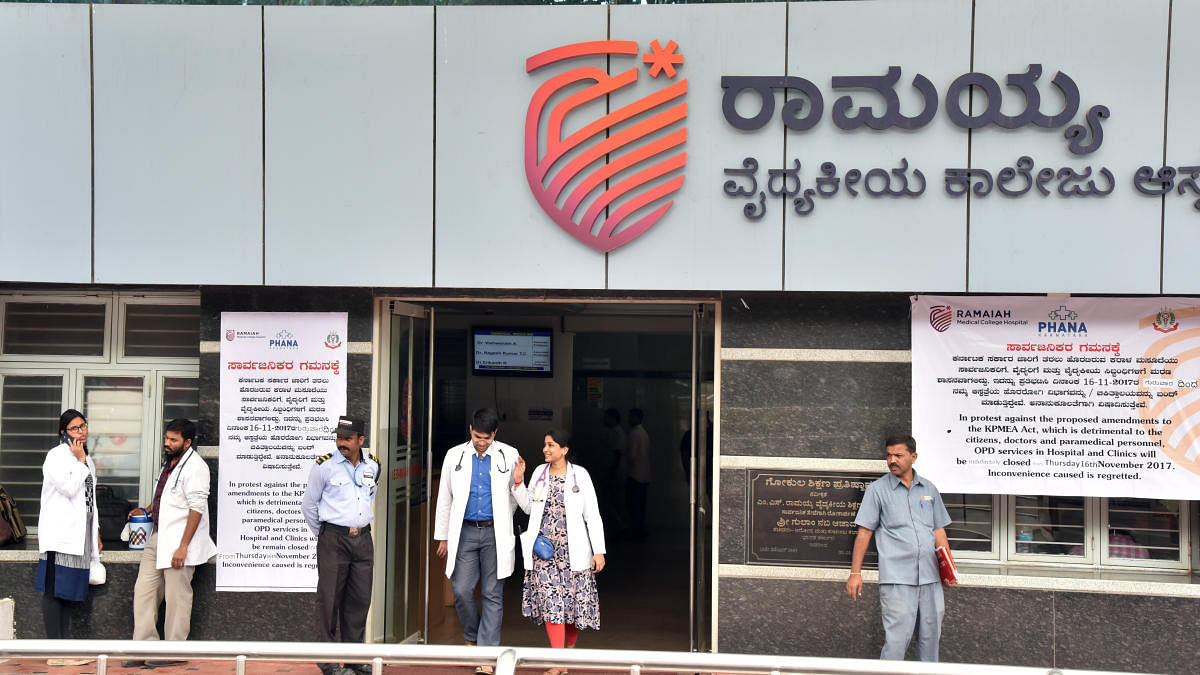
Sex reassignment surgeries (SRS) that were on a steady rise till two years ago have come to a standstill after the pandemic broke out. However, this has not reduced the calls from patients who were lined up for the surgeries.
A normal year would see at least 20 to 25 surgeries in the city in a year, say city doctors who perform them.
Ramaiah Medical College is one of the most sought-after hospitals for SRS. Dr H K Nagaraj, senior professor, urology, says the number of people coming in for female to male sex reassignment surgeries increased in the last two years. “While many turn to prostitution for a livelihood after the surgery, some others hope this would fetch them a good job,” says Nagaraj. He says that many are aged between 20 and 30 and come from lower class or middle-class families.
How expensive is it?
While government hospitals charge a more affordable amount, between Rs 20,000 and Rs 60,000, private hospitals charge in lakhs. “If it is only SRS it is Rs 50,000, but surgeries that involve silicone implants (breast reconstruction) cost Rs 70,000,” informs Dr Nagaraj.
The plastic surgery wing of the Victoria hospital also specialise in SRS. They charge around Rs 20,000 to Rs 40,000. The more complicated procedures would cost Rs 50,000.
Dr K T Ramesh, professor and head of the plastic surgery department at the hospital, says that they have not done any surgeries after the pandemic.
“We usually have at least 20 to 25 surgeries a year. There are two categories of people who come in for SRS- male to female and female to male; the former is more common,” says Dr Ramesh.
He points out that the latter group have a better chance at a normal life. “Some of them even get married, others settle in for a good job,” explains Ramesh.
Possible complications
SRS is risky and painful, concede doctors who perform them. “It takes great mental strength for these people to arrive at this decision. They go through severe mental and emotional trauma before they take the leap. This is where counsellors step in and help them get through it,” says Dr Nagaraj. The complications that could arise are developing infections and difficulty in passing urine among other things, says Dr Nagaraj.
He explains that the procedure is complicated because it involves the removal of male organs, in male-to-female reassignment surgery. “We fashion the foreskin of the penis and shape it like a vagina and make the folds appear like a female organ. Some may even go in for a breast reconstruction which is a painful procedure, he adds.
Dr Ramesh says the biggest challenge when performing SRS is that there are no clear cut guidelines to conduct this procedure hassle-free. “Doctors are scared of getting entangled in legal issues. We follow the international guidelines, but there is no clarity from our government on this,” says Ramesh.
The other complications are more cultural. Public restrooms have been a battleground for transgender rights for a really long time. Some temples don’t allow trans people to enter.
Why counselling helps
Dr H Chandrashekar, professor and HOD psychiatry at Bangalore Medical College and Research Institute, who has counselled more than 30 SRS patients, say that the preparation for the surgery requires at least six months, “SRS is a life-changing decision. They look and feel different but they sometimes don’t get the life that they had imagined they would. This leaves them distraught. Gender identity crisis haunts them even post the surgery,” explains Dr Chandrashekar. “We counsel them and put them through hormonal therapy that helps them get adjusted to a new life,” he adds.